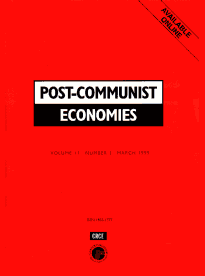
What Drives FDI in Central-eastern Europe? Evidence from the IWH-FDI-Micro Database
The focus of this paper is on the match between strategic motives of foreign investments into Central-Eastern Europe and locational advantages offered by these countries. Our analysis makes use of the IWH-FDI-Micro Database, a unique dataset that contains information from 2009 about the determinants of locational factors, technological activity of the subsidiaries, and the potentials for knowledge spillovers in the Czech Republic, Hungary, Poland, Romania, and Slovakia. The analysis suggests that investors in these countries are mainly interested in low (unit) labour costs coupled with a well-trained and educated workforce and an expanding market with the high growth rates in the purchasing power of potential buyers. It also suggests that the financial crisis reduced the attractiveness of the region as a source for localised knowledge and technology. There appears to be a match between investors’ expectations and the quantitative supply of unqualified labour, not however for the supply of medium qualified workers. But the analysis suggests that it is not technology-seeking investments that are particularly content with the capabilities of their host economies in terms of technological cooperation. Finally, technological cooperation within the local host economy is assessed more favourably with domestic firms than with local scientific institutions – an important message for domestic economic policy.




